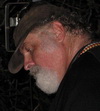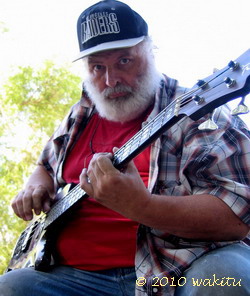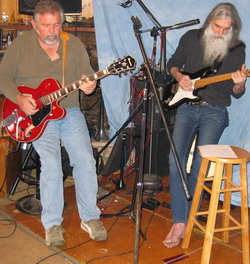| « The View from the Circle Pits of Sonisphere Day 2 | Looking Back on Knebworth House and the Launch of Sonsiphere » |
Practice Makes Perfect
Band practice. Boy, that sounds like work, and they are. You’re thinking, “I’ve got to get to practice, what a bore.” You just want to get out on stage and be a star, right? But we all know that we need practice to be perfect, or to even approach it. Now the big question is, how do we make those practices work to our advantage? How can we achieve the most forward progress in the least amount of time?
Click through to find the ways!
Well, some ways not to do it are:
- Make your practice into a jam session.
- Invite a bunch of family and friends to watch.
- Wait to learn the songs until you get to practice.
- Show up late or need to leave practice early.
- Let everyone vote on what tunes need practicing.
You need to plan your practices with clear and precise goals. “Zig” Ziglar is an internationally known motivational speaker and he has a line that I love: “If you don’t have a plan, if you don’t know where you are going, you are probably going to get there.” That “there,” of course, is nowhere. Practice sessions have a limited amount of time, usually two hours to four hours. To get the maximum value from this time you need to plan what you are going to do. A good idea is to elect one member of the group as its musical director and practice leader. He should create an agenda. The word “agenda” comes from the Latin, meaning “things needing to be done;” in other words, a to-do list. He needs to be the boss of these practice sessions and everyone’s ego needs to remain at the door.
When you start your scheduled practices everyone must be on time. Respect your fellow band mates; their time is as valuable as your own. Turn the cell phones off; answering their ring tones just means an entire group of people gets to wait. Also, make sure that you have a professional, accurate means of tuning at your disposal. There’s no reason to waste 10% to 15% of your practice time getting in tune.
Some songs will need work on the open or the close, or both. You don’t need to play the entire song to practice those parts. Just count it in four bars before and practice what needs practicing. The same thing applies to bridges that need work. Everyone in the group should know your repertoire so that that they can drop into any song, at any spot. As a group you are supposed to be tight. You need to be especially aware of what the other players are doing and be in synch with them. Tight, sharp endings sound much more professional than loud strumming jams.
And, speaking about knowing songs, practice is not the place to learn a song. The group members should learn the songs, certainly the chord changes, from charts at home and rehearse them, as a group, at practice. 60% of the group should not have to wait while the guitarist attempts to teach the bassist the chord changes. Make sure that you record your practice sessions. It’s amazing what mistakes you will miss when playing, only to find them front and center when listening to the playback.
I’m not trying to turn your practice sessions into some efficiency expert’s dearest daydream. But, how many times do you walk out of practice saying, “Well, that didn’t accomplish anything.” Practice is work and when you finish working you would like to have product to show for your labors, and the more the better.
I was at a practice session for Freddie Ravel’s band, “Ravelation,” and it was just perfect. Of course I would expect that, because when Freddie is not playing music he works as a motivational speaker for Fortune 500 companies. Ravelation had a stellar line up: Freddie Ravel on keyboards, Michael O’Neil, George Benson’s guitarist on guitar, the drummer from the “Yellow Jackets,” Madonna’s percussionist, Kenny G’s bassist and Natalie Cole’s horn section. These guys work all of the time and they cannot afford to waste time with unproductive practices. They had one three-hour practice and then they went out and played three gigs. Everyone had charts at practice and all of the band members were literate musicians. That’s right, they could all sight read. Freddie ran the practice and over the afternoon their two sets were rehearsed and had any of the rough spots ironed out. It was a beautiful thing to watch and they sounded like they had played together for years when they performed.
One other thing to handle at the beginning or end of practice is to discuss upcoming band business and schedules. Everyone needs to know practice times, gig times, who is bringing what equipment and anything else that requires you all to be on the same page.
When you are out playing, it feels great when you are “in the pocket,” when you know what everyone in the group is going to do, when your set is tight and your entire performance sounds and looks sharp. Good practices will do that for you.




